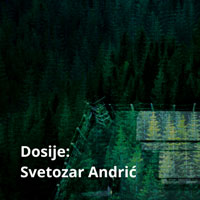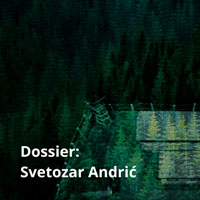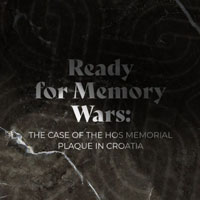THE SECOND DECADE – Analysis of War Crimes Trials in the Period 2014-2024

 Early July 2024 marked the passage of twenty years since the establishment of institutions specialized in prosecuting war crimes in Serbia. The second decade of war crimes prosecution was marked by the political relativization of responsibility—both political and criminal—for crimes committed during the armed conflicts in the former Yugoslavia. The dissolution of the International Criminal Tribunal for the former Yugoslavia (ICTY) following the completion of its mandate, and the state’s shift in focus towards negotiations for European Union (EU) membership, have further pushed the issue of punishing human rights violations from the 1990s to the margins.
Early July 2024 marked the passage of twenty years since the establishment of institutions specialized in prosecuting war crimes in Serbia. The second decade of war crimes prosecution was marked by the political relativization of responsibility—both political and criminal—for crimes committed during the armed conflicts in the former Yugoslavia. The dissolution of the International Criminal Tribunal for the former Yugoslavia (ICTY) following the completion of its mandate, and the state’s shift in focus towards negotiations for European Union (EU) membership, have further pushed the issue of punishing human rights violations from the 1990s to the margins.
The optimism expressed in the Analysis of War Crimes Processing in Serbia from 2004 to 2013, regarding the improvement of institutional performance in this field through the development and consistent implementation of goals set forth in strategic documents, was betrayed. The adopted strategies for dealing with war crimes, both the National and the Prosecutorial ones, exposed the institutions’ lack of preparedness and weakness in taking steps that lead to more effective war crimes prosecution.






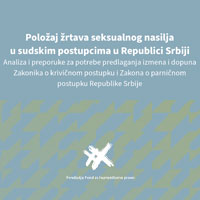
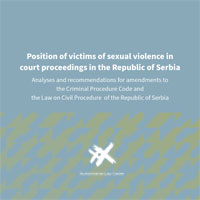 Analyses and recommendations for amendments to the Criminal Procedure Code and the Law on Civil Procedure of the Republic of Serbia
Analyses and recommendations for amendments to the Criminal Procedure Code and the Law on Civil Procedure of the Republic of Serbia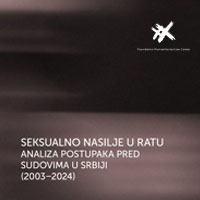
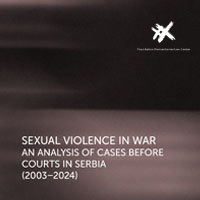 Since its establishment in 2003, the Public Office of the War Crimes Prosecutor (POWCP) of the Republic of Serbia has issued 106 indictments against individuals for crimes committed during the wars in the former Yugoslavia. Only 13 indictments filed include incidents of sexual violence, which indicates that in the previous practice of the domestic judiciary, sexual violence was rarely prosecuted, and when prosecuted it was most often considered as a war crime that occurs alongside murder and other physical violence. Considering the prevalence of rape and other forms of sexual violence in armed conflicts in the former Yugoslavia, it is clear that the domestic judiciary has not paid due attention to these crimes.
Since its establishment in 2003, the Public Office of the War Crimes Prosecutor (POWCP) of the Republic of Serbia has issued 106 indictments against individuals for crimes committed during the wars in the former Yugoslavia. Only 13 indictments filed include incidents of sexual violence, which indicates that in the previous practice of the domestic judiciary, sexual violence was rarely prosecuted, and when prosecuted it was most often considered as a war crime that occurs alongside murder and other physical violence. Considering the prevalence of rape and other forms of sexual violence in armed conflicts in the former Yugoslavia, it is clear that the domestic judiciary has not paid due attention to these crimes.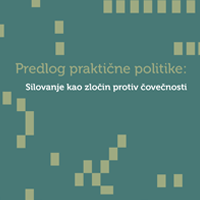
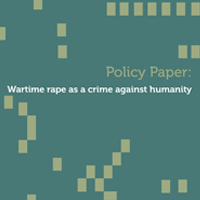 The practice of international criminal tribunals has set the standard for prosecuting rape and sexual violence in war. The International Criminal Tribunal for the former Yugoslavia (ICTY) and the International Criminal Tribunal for Rwanda (ICTR) have recognised that such acts, when committed in the context of a systematic and widespread attack against the civilian population, may qualify as crimes against humanity.
The practice of international criminal tribunals has set the standard for prosecuting rape and sexual violence in war. The International Criminal Tribunal for the former Yugoslavia (ICTY) and the International Criminal Tribunal for Rwanda (ICTR) have recognised that such acts, when committed in the context of a systematic and widespread attack against the civilian population, may qualify as crimes against humanity.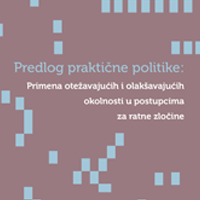
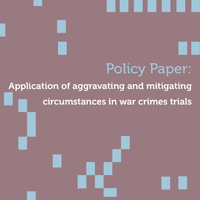 By August 2024, 68 war crimes proceedings were conducted and finalised before the Higher Court in Belgrade as a court of first instance and the Court of Appeal in Belgrade as a court of second instance. In these proceedings, 95 persons were sentenced to prison terms ranging from one to twenty years for war crimes against civilians and war crimes against prisoners of war. The purpose of war crimes trials is to establish a complete factual picture in order to individualise the guilt of persons charged with criminal offences, adequately punish those found guilty, and achieve justice for victims. Therefore, identifying aggravating and mitigating circumstances for deciding the length of prison sentences proves to be particularly significant.
By August 2024, 68 war crimes proceedings were conducted and finalised before the Higher Court in Belgrade as a court of first instance and the Court of Appeal in Belgrade as a court of second instance. In these proceedings, 95 persons were sentenced to prison terms ranging from one to twenty years for war crimes against civilians and war crimes against prisoners of war. The purpose of war crimes trials is to establish a complete factual picture in order to individualise the guilt of persons charged with criminal offences, adequately punish those found guilty, and achieve justice for victims. Therefore, identifying aggravating and mitigating circumstances for deciding the length of prison sentences proves to be particularly significant.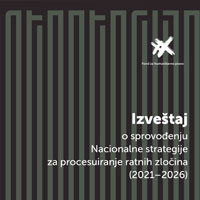
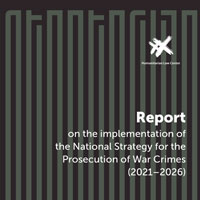 The National Strategy for the Prosecution of War Crimes for the Period 2021–2026 was adopted in October 2021.1 In addition to monitoring and analysis of war crimes trials in Serbia, the HLC monitors and reports on the state of implementation of the National Strategy and its achievements in order to assist in the qualitative and quantitative assessment of the measures and activities set forth in the Strategy.
The National Strategy for the Prosecution of War Crimes for the Period 2021–2026 was adopted in October 2021.1 In addition to monitoring and analysis of war crimes trials in Serbia, the HLC monitors and reports on the state of implementation of the National Strategy and its achievements in order to assist in the qualitative and quantitative assessment of the measures and activities set forth in the Strategy.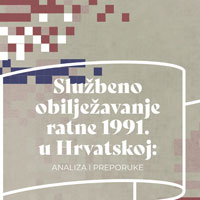
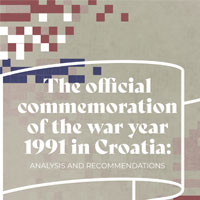
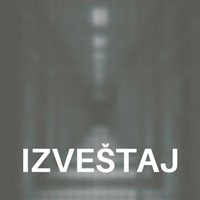
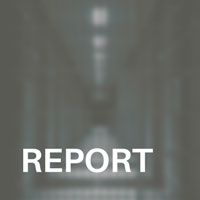 The HLC has monitored all war crimes trials conducted in the territory of Serbia in 2023, namely a total of 27 cases conducted before the War Crimes Departments of the Higher Court and the Court of Appeal in Belgrade. For each of the cases, the Report provides an overview of the proceedings and the HLC’s basic findings which are of public relevance. A large number of the war crimes cases covered by this Report have been ongoing for a several years, hence the previous HLC’s annual trial reports are also relevant for a full grasp of the course of the proceedings and the pertinent HLC findings.
The HLC has monitored all war crimes trials conducted in the territory of Serbia in 2023, namely a total of 27 cases conducted before the War Crimes Departments of the Higher Court and the Court of Appeal in Belgrade. For each of the cases, the Report provides an overview of the proceedings and the HLC’s basic findings which are of public relevance. A large number of the war crimes cases covered by this Report have been ongoing for a several years, hence the previous HLC’s annual trial reports are also relevant for a full grasp of the course of the proceedings and the pertinent HLC findings.